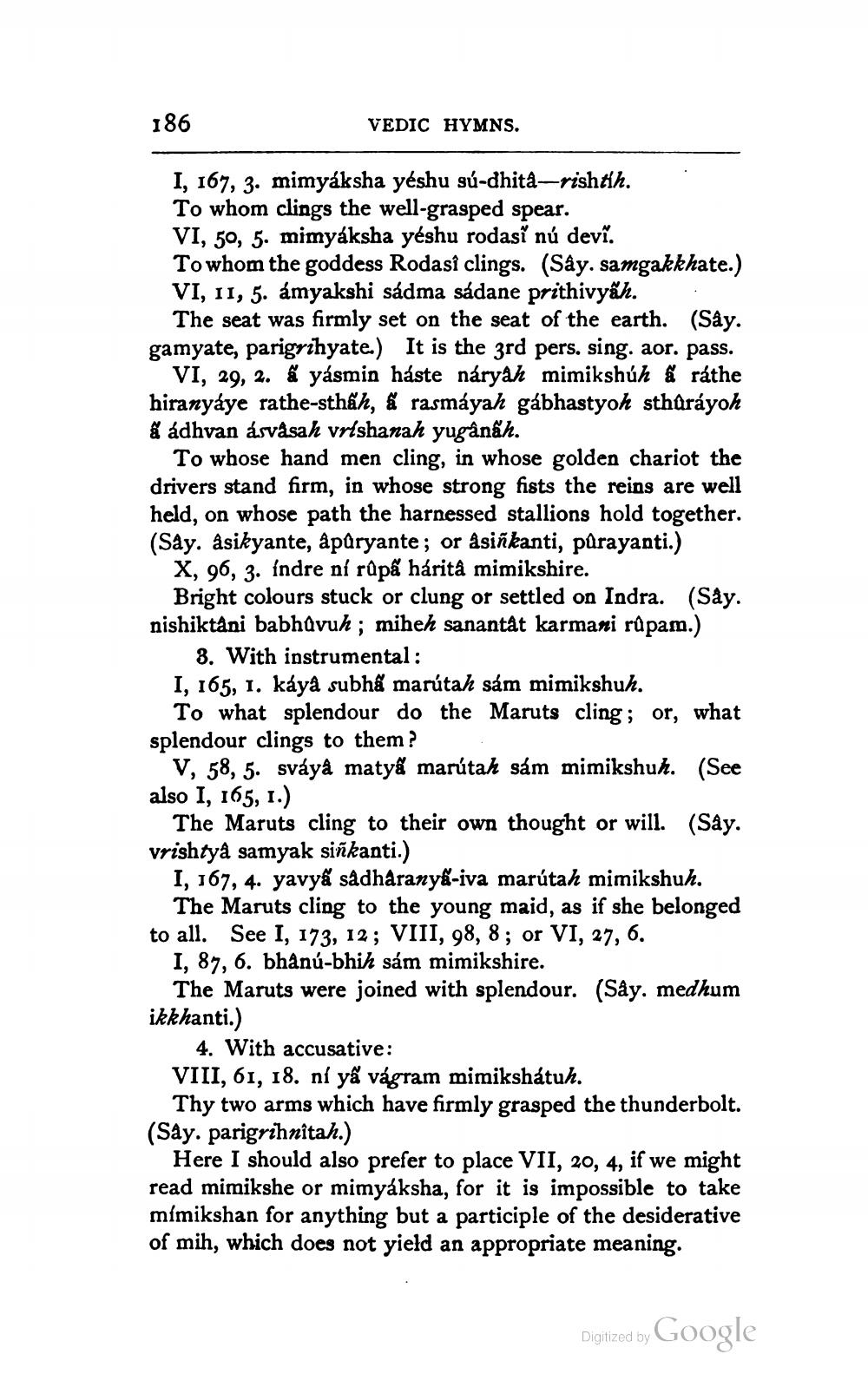________________
186
VEDIC HYMNS.
I, 167, 3. mimyáksha yéshu sú-dhita-rishtih. To whom clings the well-grasped spear. VI, 50, 5. mimyaksha yéshu rodasi nú devĩ. To whom the goddess Rodasî clings. (Sây. samgakkhate.) VI, 11, 5. ámyakshi sádma sádane prithivyäh.
The seat was firmly set on the seat of the earth. (Sày. gamyate, parigrihyate.) It is the 3rd pers. sing. aor. pass.
VI, 29, 2. á yasmin háste náryâh mimikshúh a rathe hiranyaye rathe-sthäh, a rasmáyah gabhastyoh sthäráyoh & ádhvan ásvásah vrlshanah yugânäh.
To whose hand men cling, in whose golden chariot the drivers stand firm, in whose strong fists the reins are well held, on whose path the harnessed stallions hold together. (Say. åsikyante, aparyante; or asinkanti, pūrayanti.)
X, 96, 3. indre ní růpá hárità mimikshire.
Bright colours stuck or clung or settled on Indra. (Såy. nishiktäni babhavuh; miheh sanantat karmani rūpam.)
8. With instrumental: I, 165, 1. kaya subhã marútah sám mimikshuh.
To what splendour do the Maruts cling; or, what splendour clings to them?
V, 58, 5. sváyà matyå marútah sám mimikshuh. (See also I, 165, 1.)
The Maruts cling to their own thought or will. (Sây. vrishtyâ samyak sinkanti.)
I, 167, 4. yavyā sadharanyâ-iva marútah mimikshuh.
The Maruts cling to the young maid, as if she belonged to all. See I, 173, 12; VIII, 98, 8; or VI, 27, 6.
I, 87, 6. bhânú-bhih sám mimikshire.
The Maruts were joined with splendour. (Sây. medhum ikkhanti.)
4. With accusative: VIII, 61, 18. ni yã vágram mimikshátuh.
Thy two arms which have firmly grasped the thunderbolt. (Say. parigrihnitah.)
Here I should also prefer to place VII, 20, 4, if we might read mimikshe or mimyaksha, for it is impossible to take mimikshan for anything but a participle of the desiderative of mih, which does not yield an appropriate meaning.
Digitized by
Digitized by Google




